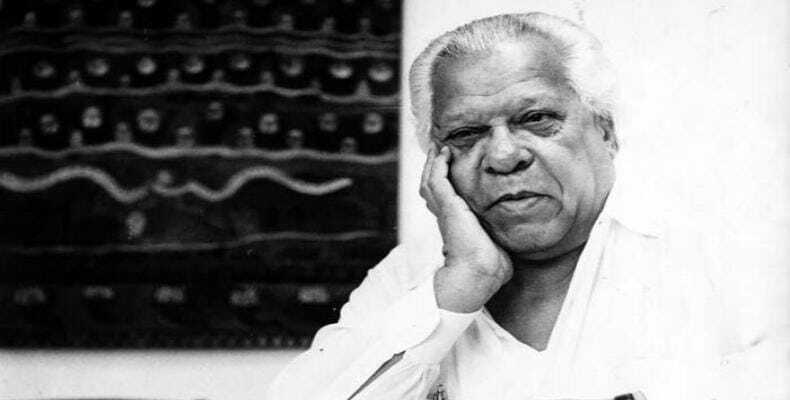![]()
The writings of the poet show a variety of styles and themes that position him among those rare exceptionalities of a vast and essential literature that describes the human and social concerns of the historical context in which he lived

By Betzabe Cabreja Jeffers/Radio Camagüey
July, 2023.- July could be, perhaps, the most important month for Cuban poetry. In it, as an inexplicable work of life or destiny, was born and died who is undoubtedly one of the most important voices in the lyric of the Island.
Nicolás Guillén Batista knew how to blend in perfect harmony the mulatto condition of the Island and a continent, while immortalizing the fundamental essence of common being, elevating it to the plane of universality.
The validity of his poetry is shown intact in the many tributes paid to him by the Foundation that proudly bears his name, the National Union of Writers and Artists of Cuba (UNEAC, Spanish Acronym), along with other institutions.
The writings of the poet show a variety of styles and themes that position him among those rare exceptionalities of a vast and essential literature that describes the human and social concerns of the historical context in which he lived.
In 1930 his first successful book Motivos de son came to light, where he introduced the black presence, relegated and discriminated against due to the absurd prejudices of the time, using new resources such as the insertion of phonemes and rhythms from Afro-Cuban music and language, which demonstrates the creativity of his poetry.
For the following year (1931) Songoro cosongo; mulatto poems expanded with genius the innovations of the cultist, immediately recognized by his people, until he obtained the title of National Poet.
Two years after the revolutionary triumph of 1959, he began to preside over the ranks of the UNEAC from where he defended the position of the creators and developed a work of promotion and dedication to culture until his last days.
On the 121st anniversary of his birth it is a good day to remember him because his work exceeds all borders.
With long silver hair, good-natured gestures and a deep harmonious voice, he still seems to rest from Cabo de San Antonio to Punta de Maisí throughout the archipelago to declaim one of his ingenious poems.